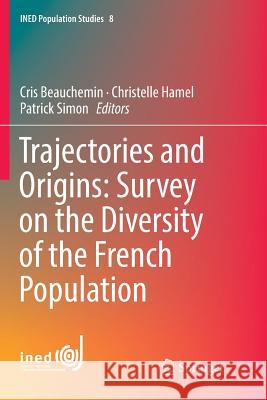Trajectories and Origins: Survey on the Diversity of the French Population » książka
topmenu
Trajectories and Origins: Survey on the Diversity of the French Population
ISBN-13: 9783030095413 / Angielski / Miękka / 2019 / 376 str.
Trajectories and Origins: Survey on the Diversity of the French Population
ISBN-13: 9783030095413 / Angielski / Miękka / 2019 / 376 str.
cena 403,47
(netto: 384,26 VAT: 5%)
Najniższa cena z 30 dni: 385,52
(netto: 384,26 VAT: 5%)
Najniższa cena z 30 dni: 385,52
Termin realizacji zamówienia:
ok. 22 dni roboczych
Bez gwarancji dostawy przed świętami
ok. 22 dni roboczych
Bez gwarancji dostawy przed świętami
Darmowa dostawa!
Kategorie:
Kategorie BISAC:
Wydawca:
Springer
Seria wydawnicza:
Język:
Angielski
ISBN-13:
9783030095413
Rok wydania:
2019
Dostępne języki:
Numer serii:
000465074
Ilość stron:
376
Waga:
0.55 kg
Wymiary:
23.39 x 15.6 x 2.08
Oprawa:
Miękka
Dodatkowe informacje:
Wydanie ilustrowane











